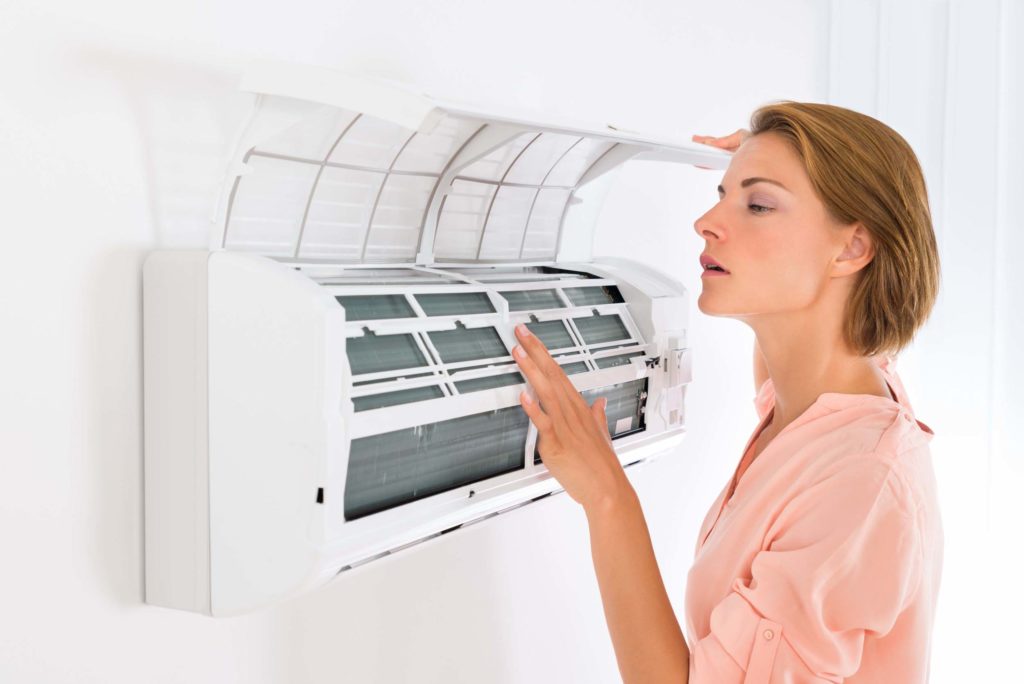Troubleshooting Guide: Why Is Your AC Blowing Hot Air?

Table of Contents
Introduction:
As temperatures rise, a malfunctioning air conditioner can quickly turn a comfortable home into an unbearable sauna. One of the most frustrating issues homeowners face is when their AC unit starts blowing hot air instead of the refreshing cool breeze they expect. When your AC system fails to deliver the cooling relief you need, it’s time to roll up your sleeves and dive into some troubleshooting. In this comprehensive guide, we’ll explore the potential causes behind your AC blowing hot air and discuss effective solutions to get your cooling system back on track.
Understanding How Your AC Works:
Before delving into troubleshooting, it’s helpful to have a basic understanding of how your air conditioning system operates. Most AC units work by circulating refrigerant through a closed-loop system. The refrigerant absorbs heat from inside your home, then releases it outside, resulting in cooler air being circulated back into your living space. This process relies on several components working together seamlessly, including the compressor, evaporator coil, condenser coil, and blower fan.
Common Causes of AC Blowing Hot Air:
Low Refrigerant Levels:
- One of the most common reasons for an AC to blow hot air is low refrigerant levels. When your system doesn’t have enough refrigerant, it can’t effectively absorb heat from your home’s air. Low refrigerant levels are often caused by leaks in the system, which need to be located and repaired by a professional HVAC technician.
Dirty or Clogged Air Filters:
- Dirty or clogged air filters can restrict airflow, leading to reduced cooling performance. Over time, dust, dirt, and debris accumulate in the filters, inhibiting the flow of air through the system. Regularly replacing or cleaning your air filters can help prevent this issue and keep your AC running efficiently.
Faulty Thermostat:
- A malfunctioning thermostat can cause your AC to blow hot air or fail to turn on at all. If the thermostat is not accurately sensing the temperature in your home, it may not signal the AC to start cooling. Checking the thermostat settings and ensuring it is functioning correctly is a simple first step in troubleshooting this issue.
Dirty Evaporator or Condenser Coils:
- The evaporator and condenser coils play crucial roles in the cooling process. Over time, these coils can become coated with dirt, dust, and grime, hindering their ability to absorb and release heat effectively. Regular maintenance, including coil cleaning, can help prevent this problem and optimize your AC’s performance.
Electrical Issues:
- Electrical problems, such as faulty wiring or a malfunctioning capacitor, can disrupt the operation of your AC unit. If the electrical components responsible for powering the compressor or blower fan are not functioning properly, it can result in hot air being blown into your home. Professional inspection and repair may be necessary to address these issues safely.
Compressor Problems:
- The compressor is the heart of your air conditioning system, responsible for pressurizing the refrigerant and circulating it through the system. If the compressor is malfunctioning or failing, it can lead to inadequate cooling or hot air blowing from the vents. Compressor issues often require professional diagnosis and repair.
Troubleshooting Steps:
Check the Thermostat:
- Start by ensuring that your thermostat is set to the correct temperature and operating properly. If the thermostat batteries are dead or the settings are incorrect, it could prevent your AC from cooling effectively.
Inspect the Air Filters:
- Check the air filters for dirt, dust, or debris, and replace or clean them if necessary. Restricted airflow due to dirty filters can impede cooling performance and cause your AC to blow hot air.
Examine the Outdoor Unit:
- Inspect the outdoor condenser unit for any visible signs of damage or debris accumulation. Clear away any obstructions, such as leaves or branches, and ensure that the unit has adequate airflow around it.
Check for Refrigerant Leaks:
- If you suspect low refrigerant levels, contact a qualified HVAC technician to inspect your system for leaks and recharge the refrigerant as needed. Attempting to handle refrigerant yourself can be dangerous and should only be done by trained professionals.
Clean the Evaporator and Condenser Coils:
- Schedule regular maintenance appointments to have your evaporator and condenser coils cleaned by a professional HVAC technician. Clean coils allow for optimal heat transfer and prevent airflow restrictions that can lead to hot air blowing from the vents.
Test Electrical Components:
- If you suspect electrical issues, such as a faulty capacitor or wiring problem, contact a licensed electrician or HVAC technician to inspect and repair the electrical system safely.
Conclusion:
Dealing with an AC blowing hot air can be a frustrating experience, especially during the sweltering summer months. By understanding the common causes behind this issue and following the troubleshooting steps outlined in this guide, you can identify and resolve the problem effectively. Remember, regular maintenance and prompt attention to any signs of trouble are key to keeping your air conditioning system running smoothly and your home cool and comfortable all season long. If you encounter any issues beyond your expertise, don’t hesitate to seek assistance from a qualified HVAC professional.





